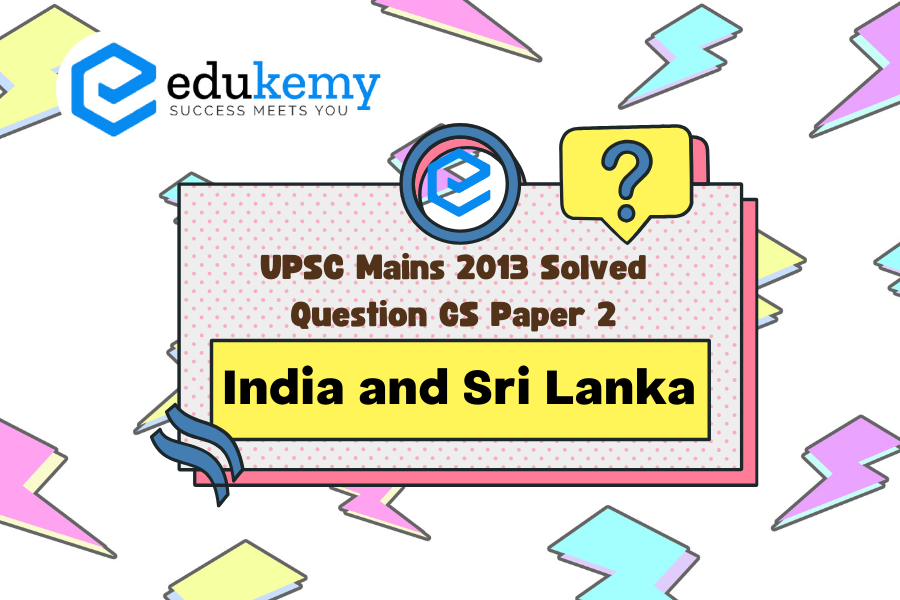In the intricate tapestry of international relations, the bilateral dynamics between India and Sri Lanka offer a fascinating case study, showcasing the symbiotic relationship between domestic politics and foreign policy decisions. India, as a regional powerhouse, and Sri Lanka, its island neighbor, navigate a complex terrain shaped by historical ties, geopolitical imperatives, and, crucially, domestic factors. Within this context, domestic considerations wield significant influence over the trajectory of their bilateral relations. In India, the intricate interplay between federal politics, regional aspirations, and public sentiment towards Sri Lanka’s Tamil minority shapes the contours of its foreign policy towards its southern neighbor. The legacy of the Tamil issue resonates deeply within Indian politics, with various stakeholders exerting pressure on the government to advocate for Tamil rights in Sri Lanka. Conversely, in Sri Lanka, the delicate balancing act between its Sinhalese-majority government and Tamil minority aspirations intersects with its engagement with India. Domestic political imperatives in both countries, therefore, intricately intertwined with their foreign policy decisions, illustrating the inseparability of domestic dynamics from the broader canvas of international relations.
Tag: Indian foreign policy since Independence under various Prime Ministers like Non-Alignment Movement, Gujral Doctrine, etc.
Contents
Decoding the Question:
- In the Intro try to write in general information about India-Sri Lanka relations.
- In Body, discuss how domestic issues influence foreign policy to both countries.
- Try to Conclude, answer with the significance of Sri Lanka for India, and suggest way forward.
Answer:
Both countries have a legacy of intellectual, cultural, religious, and linguistic interaction. In recent years, the relationship has been marked by close contacts at all levels. Trade and investment have grown and there is cooperation in the fields of development, education, culture, and defence. Both countries share a broad understanding on major issues of international interest. However, India and Sri Lanka domestic factors lead to increased tension between both the countries.
Impact of Domestic Factors on Foreign policy:
- Fishermen Issue: Fishermans of Tamil Nadu and Kerala often cross the sea boundary of India and the same thing is done by Sri Lankan fishermens. This crossing and entering territorial waters of the other country leads to killing of fishermen.
- Tamil Ethnic Issue: Tamil ethnicity in north-eastern state of Sri Lanka is another critical issue between both the countries. Since past various time Tamilians objected against Sri Lankan authorities and pressurised Indian government to take actions against them. For example, the 13th Amendment is the great example where Both countries agreed on certain things and Sri Lanka agreed to give due citizenship status to Tamil minorities.
- Katchatheevu Island Issue: This uninhabited island which India succeeded to Sri Lanka based on conditional agreement later on Sri Lanka declared it as sacred place. But Later on the Sri Lankan government claimed their sovereignty but Tamil people rejected it as it is Indian territory.
- Granting Citizenship to the Tamilians: Sri Lankan people often opposed making a separate province for Tamil majority Northeast province. Which resulted in clashes between communities and resulted in this rise in tension between both the countries.
- Cancelation of the East Container Project: Sri Lanka, Japan, and India signed an agreement to jointly develop the ECT at the Colombo Port in May 2019. The opposition parties in Sri Lanka (which included the Rajapaksas) were unhappy with the then National Unity Government (NUG) for signing the agreement without discussing it in Parliament.
- Jaffna Hybrid Energy Project: It was a joint venture (JV) programme awarded the contract to install a hybrid renewable energy system on Nainativu, Delft, and Analaitivu islands off the Jaffna Peninsula.
- United Nations Human Rights Council Resolution (UNHRC): Sri Lanka is looking for support from the international community at the on-going 46th session of the UNHRC. The Office of the High Commissioner prepared a comprehensive report on the human rights situation in Sri Lanka.
Robust relation with Sri Lanka is very significant from India’s point of view to counterbalance China in the Indian Ocean Region. Though there are issues, India shares great Cultural and trade relations, people to people contacts, India’s investment etc. are many positives. India can try to work out a permanent solution through bilateral engagements and improving traditional and cultural ties. Mutual recognition of each other’s interests and concerns can improve the relationship between both countries.
In case you still have your doubts, contact us on 9811333901.
For UPSC Prelims Resources, Click here
For Daily Updates and Study Material:
Join our Telegram Channel – Edukemy for IAS
- 1. Learn through Videos – here
- 2. Be Exam Ready by Practicing Daily MCQs – here
- 3. Daily Newsletter – Get all your Current Affairs Covered – here
- 4. Mains Answer Writing Practice – here


